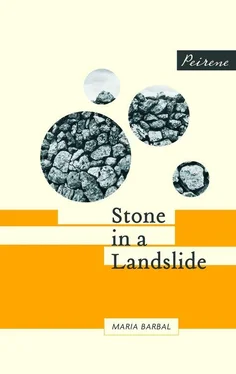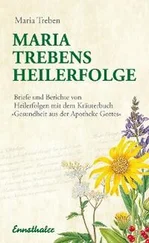We’d spent the afternoon turning the grass in Tres Aigües. It was getting dark. The breeze made a restless sound through the nearby hazel trees. I heard Oncle’s whistle and I picked up my rake and pitchfork. I was hot under my headscarf and felt the sweat burning the roots of my hair. When I took the scarf off I heard all sorts of sounds, above all the noise of the flies. I ran to the cart as fast as I could but waited for Tia before I got in as she had stayed to close the gate. While I stood there, I looked at the land divided up into small irregular plots. I thought, even the richest man here is still very poor. The plots gave at most four cartloads of hay. The mule seemed to be looking at me with his peaceful gaze, and I rubbed his nose with my hand.
The bell tower appeared, stretching its neck over the houses of Pallarès. As we went down towards home, the stones made the wheels bounce so much we nearly fell out.
Tia and I sat right at the back of the cart. I could smell the grass, welcoming and soft. She told me that the parish had asked for me to pass the plate of basil on the day of the Festa Major . Of course you will go, we will get a dress of some sort, she added before I had a chance to open my mouth. Even in the bumping and bouncing cart, I could feel myself trembling. It was happiness.
I closed my eyes and those first days of my new life seemed very far away: the nights I cried myself to sleep remembering each and every person from home, the times I would wake with a start, and the anxiety that didn’t leave me all day. How quickly I’d got used to such a great change! But if I counted it up, I’d already been away for half a year. And now I felt, not fully, but almost as if I’d been born in Tia’s house.
When you knew Tia well, you came to love her, because she didn’t begrudge what she gave you as long as you followed her orders to the letter. Decide, then act, that was her, and she didn’t like to be contradicted. Like my mother, she was not demonstrative, but in her own way she showed affection. A glass of fresh milk, still warm from the cow, beside my plate, without a word. I knew they saved it for the calves, or if there was more than enough, they took a few litres to the Augusts’ to earn a peseta or two.
Oncle kept quiet, like that first day on top of the mule, but he wasn’t bad-tempered. I wore myself out helping him. He worked and worked. I learnt to do everything, outside the house as well as in. Exactly as they had shown me, without any touches of my own which they might think showed a lack of respect.
They liked everything: the chorizo and the black pudding, the cuts of ham. They even liked the bacon. It’s much tastier than the stuff down there, they would say.
I enjoyed seeing how they kept helping themselves to more and the way they used their knives for almost everything. Tia’s cousin even cut the tiny bit of fat off the ham and left it at the edge of his plate. They eat like kings, Oncle would say. When I took the plates out to the kitchen, I picked it up with two fingers and ate it — the fat I mean. I’d always liked that intense flavour, even more than the lean, and besides, they’d taught me not to waste anything.
City people are different. They’re a bit picky about food and so they put on airs. As soon as they start working behind a counter, their heads get swollen. That’s what my aunt and uncle said, and I believed every word of it, but I liked the cousins from Barcelona coming up every year. I enjoyed how they filled the house and embraced Oncle and Tia, wiping away the tears and saying, This young lady gets lovelier every time, and what beautiful curly hair! In Pallarès no one says “young lady” nor “lovely”. I understood these words even if I didn’t use them and they pleased me, and I thought that a language is like a tool that each person picks up in their own way, even if it is used for the same purpose.
They certainly made extra work for us. Sometimes Tia would nearly burst because she wanted everything to be nice, but she also had to tend to the animals and the meadows as well as the kitchen and there weren’t enough hands to do it all. It was because of these visits that I began to cook and Tia became more relaxed. At first she tasted everything and she didn’t trust me at all, but gradually she saw that I had sense and patience and she let me prepare the salads on my own. After that, the omelettes and vegetables, later the stews, and last of all, the soup. For my aunt and uncle, soup was sacred, and it was the badge of their trust in me when they at last let me make it. We had soup every day. Like bread, you had to have it.
When the cousins from Barcelona came, we would spend a lot more, but they would also bring coffee, a box of biscuits and a slab of chocolate, which we loved best of all. I remember one year they brought a porcelain fruit-stand which certainly looked worth whatever they must have paid for it. It had a pretty basket with a plaited handle and an edge contoured in waves to hold the fruit better. There was a porcelain ribbon round the outside, painted with round blobs which were cherries, a stalk and two leaves on each one. Tia always moaned about that present. It’ll break if you even touch it and then you’ll never be able to fix it — fruit is meant to be kept somewhere cool, not piled up to look nice, and so on and so forth. I saw that the cousins had given it with good intentions and that was what mattered. It was also true that I loved pretty things, but I kept quiet because I didn’t want to make my aunt and uncle angry, especially not Tia, who was so practical. Better a piece of stale bread, she’d say, than something that just looks nice.
I know now that the happiest period of my life began about then, even if, truth be told, the bad times were just waiting behind all the laughter.
Very few festivals were celebrated in those years. There was so much work! Sundays were different because we started the day outdoors later, after we went to six o’clock Mass. And that was just the women, since Oncle and most of the men of the village didn’t go. The only ones who did were the old men at the head of the two most important families in the village, the Augusts and the Sebastiàs. From our pew, which was in the last few rows on the right-hand side, I could see almost everyone. Silent, a little shrunken in the cold. The women were like little trees covered in thick black veils. You left with a hurried greeting, and then it was quickly back home to gather tools or light the fire, depending on the time of year and who was at home.
The best festival by far was the one in the summer: the Festa Major ! It was on a Sunday to save time and came towards the end of the really hard work in the meadows. The harvesting and threshing would all have been done days before and if the weather hadn’t been bad the hay would be gathered in. All that was usually left was the second harvest.
The plaza was decorated with coloured paper bunting but it had to be washed down and swept a number of times throughout the day because the cows still had to go out to graze and they left it covered in dung before the solemn Mass. On the day of the festival, Mass was at ten o’clock, then again at the hour of the procession, and once more before the dance.
It had taken a long time for the other young people of the village to think of me as truly from there and not as a stranger. That was why they didn’t ask me to carry the plate of basil at the end of mass until I was sixteen. Being asked meant being one of them and helping with all the preparation for the Festa : from searching for musicians to cutting up the cake which was offered from another plate at the same time as the bouquets of basil.
I don’t know if my shyness came from my nature, my age or just from the bad luck of not being the daughter of the house where I lived. I felt I didn’t belong there and I only dared walk around on tiptoes. I believe I was finally accepted for two reasons: a word from Tia to the parish priest, and, although I don’t like to say it, because it was rumoured that I was brighter than most of the local girls who were in line to inherit. Just hearing that people thought this made me blush to the roots of my hair, and when I left the house the day after I found out, I was convinced that everyone looked at me differently and was spying on me from behind their shutters. I felt more false than ever, as if I had committed a grave sin that no one would forgive me for. Now, at the distance of so many years, I don’t think my instinct was wrong, even though I was very soon to overcome my fears and my timidity. My life was about to change again, enormously. That winter I got to know Jaume.
Читать дальше












